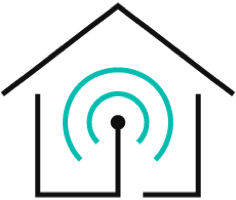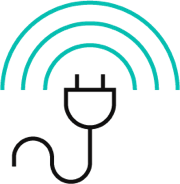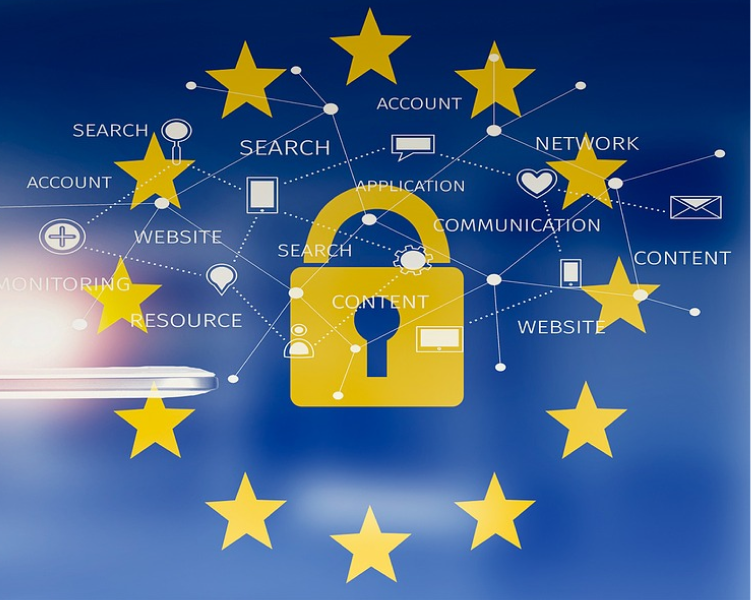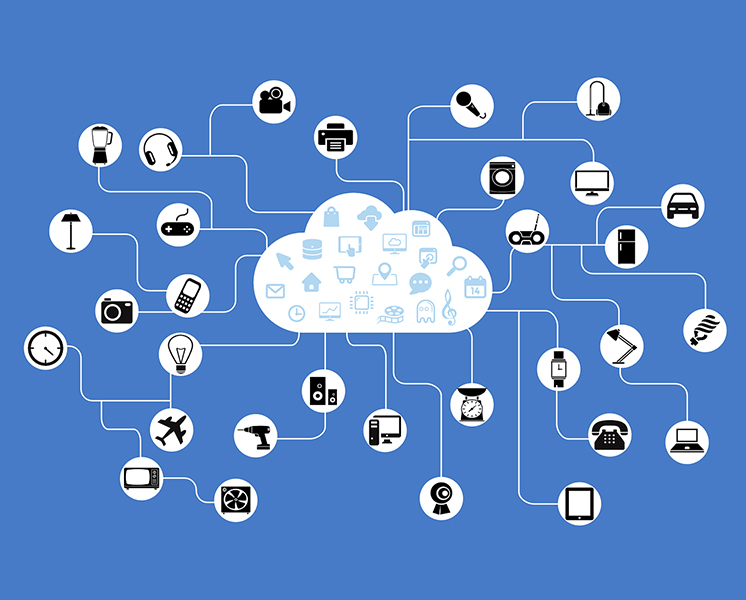The ever-expanding network of gadgets connected by the internet, known as the Internet of Things (IoT), includes everything from smartphones to factory robots with sensors. They are connected, which allows them to send and receive data, enabling various activities in daily life and business. The Internet of Things (IoT) is so widely used that, according to International Data Corporation (IDC) experts, there will be 55.7 billion connected devices on the market by 2025, with 75% of those devices linked to an IoT platform.
IoT is becoming a standard component of many businesses. IoT devices likely contribute to the company's success, regardless of the industry. IoT is available for usage in various applications, from the straightforward (like smart lightbulbs for an effective office environment) to the sophisticated (like a network of industrial equipment for identifying quality control concerns in a manufacturing process).
- What is IoT For Enterprises?
- Impact of IoT On Businesses
- 4 Ways How IoT Benefits Businesses
- Asset Tracking & Positioning
- FAQs of IoT Business
- Evvr In-Wall Relay Switch - Making Businesses Better
What is IoT For Enterprises?
IoT is a general phrase that covers a wide range of internet-connected gadgetry. These gadgets can include speakers and shipping labels for automobiles and aircraft. They might consist of intelligent sensors, lightbulbs, security systems, and large industrial machinery, all interacting with and communicating with the internet. In addition, there is the Industrial Internet of Things (IIoT), which uses similar concepts but in commercial settings and on items like manufacturing machinery.
Why is IoT crucial for enterprises, then? Although IoT in business can take many different shapes, it frequently entails gathering information on behavior, procedures, and other factors. Many IoT devices can also act to fix, enhance, or use this data in some other way to bring about change. The possibilities are endless, and IoT has numerous advantages.

Impact of IoT On Businesses
You might wonder, "How does IoT affect business," given the rise of IoT-connected devices. In a nutshell, "In every aspect."
Accessibility
Gaining insights into consumer behavior and product performance is becoming simpler because of the availability of massive data sets and autonomous data gathering and interchange. Additionally, the Internet of Things (IoT) influences employee performance and engagement and the ongoing optimization of corporate operations. When specific criteria are satisfied, IoT in business can give instructions to systems to perform transactions in supply chains autonomously in some industries.
New Products
The IoT of the future is very adaptable thanks to several innovative new technologies. Battery-free sensors, numerous wearable devices, and "small" machine-learning microcontrollers are a few. Additionally, many network enhancements are being made to boost IoT device performance. Network slicing, for instance, can be utilized to give low-latency, high-bandwidth connections for increased dependability in mission-critical equipment.
Collaboration of IoT With Cutting-Edge Technology
Business opportunities are virtually limitless when IoT combines emerging technologies like 5G and AI. IoT is powering entire cities, and security is getting better every day. Every machine in a large production facility can be connected to a remote monitoring system. Utility providers can remotely gather data from connected infrastructure and smart meters. IoT can be used by medical gadgets to let doctors know how a patient is doing. With IoT analysis, farmers can maximize their crops. It's a remarkable benefit for lots of businesses.
4 Ways How IoT Benefits Businesses
Automation & Optimization
For industries wishing to investigate automation as a new tool for remote equipment control, IoT is a game-changer. The Internet of Things (IoT) creates a smart, interconnected environment where devices and equipment make their own decisions, working in tandem with other cutting-edge technology like artificial intelligence.
The equipment in a factory may make decisions on its own, which helps a business boost efficiency and accuracy while saving money. IoT creates communication standards for the ecosystem, enabling devices and machinery to exchange information. When this data is processed using data processing tools, new insights can be gained that can then be used to guide strategic action.
Smart Contracts
Who doesn't like having the advantages of two things in one? Blockchain and the Internet of Things (IoT) are the most popular technologies in smart contract solutions. These technologies complement one another's capabilities and give businesses a reliable mechanism to manage their goods while transporting.
The logistics and fleet management industries will greatly benefit from this solution. It uses a digital Bill of Lading, which enables businesses to ensure that the products are transported safely.
Proper Utilization of Resources
A business can follow the principle of optimal resource utilization thanks to the Internet of Things. The resources could be anything, including labor, machinery, supplies, capital, and stocking capacity.
IoT technology can monitor many resource-related factors in addition to various sensor applications. A business can do preventative maintenance procedures by monitoring these factors to stop these resources from breaking down or malfunctioning.
Therefore, a business may maximize its use of these resources and ensure that their depreciation is as little as feasible.
Inventory Management & Consolidation
Industries that rely on stockrooms and warehouses particularly benefit from the Internet of Things. Technology for warehouse management is already developing. IoT will play a significant role in this technology, which is anticipated to achieve a market value of $22.4 billion by the end of 2021.
With telematics and autonomous guided trucks, IoT enables businesses to deploy automation processes in warehouses (AGVs). This lowers the expense of physical labor and expedites the transfer of items from warehouses to on-field uses. A warehouse management system (WMS) with IoT integration allows for remote monitoring of all the items kept there and the parameters that determine their quality.

Asset Tracking & Positioning
Depending on the business, different assets may be crucial. Trucks or ships may be significant assets for a logistics company, whereas machines may be the key assets for a production-based business.
IoT, however, can be applied to various assets, whether stationary or moving. The performance and condition of assets can be tracked from a distance in real-time using high-tech sensors.
All the assets may be tracked remotely, along with their location, using an IoT platform package. This makes it simpler for businesses to locate and utilize the equipment as needed.
IoT technology is a blessing for sectors of the economy searching for a game-changing answer to overcoming conventional methods. Industries can now benefit from IoT in ways that were before impossible. Businesses must utilize IoT features to succeed at new levels and get a competitive edge in this tight market.
FAQs of IoT Business
What purposes does IoT serve for businesses?
IoT uses sensors, devices, gateways, and platforms to improve business processes and solutions. Manufacturers may create more effective processes and make wiser judgments by centralizing their data.
How can businesses take advantage of the IoT revolution?
- Cost-cutting in operations. IoT solutions can assist businesses in cost-cutting while Maintaining a competitive advantage.
- Comprehension of customer behavior.
- Increase effectiveness and productivity.
- Enhance the quality of the customer experience.
- Boost workplace security.
What are the challenges that businesses face in the transition toward IoT?
The largest obstacle is working with various stakeholders to set up the IoT ecosystem. In addition, remote device management, data integration, device interoperability, and handling large volumes of data are some of the challenges businesses face while moving toward IoT.
Evvr In-Wall Relay Switch - Making Businesses Better
For companies who are truly looking to transition into the future, Evvr is the best partner to choose. Since its inception, the company has produced a string of exceptional products to provide control and security of the appliances to enterprises.
Evvr In-Wall Relay Switch is the latest and greatest iteration of the smart switch and also compatible with HomeKit. If you are unsure what it does, it transforms a conventional power outlet into a smart one. It means you can control your smart lights and other appliances remotely and more freely.
Secure Control
With complete control over the functions of smart lights, you can optimize the look and feel of your storefront or an exhibition hall by dimming lights from smart UI. Everything is connected through secure channels with compatibility over Zigbee and Z-Wave protocols.
Easy To Install
Another thing that sets the IRS apart from other switches in class is its convenience in installation. It is a no-neutral switch designed for 3-way or 4-way control.
Smarter Than Others
Whatever the type of power outlet you have in your store or warehouse, we can assure you that Evvr In-Wall Switch can turn it into a smarter one. So, what are you waiting for? Evvr can offer you a comprehensive smart home solution whether you are an integrator, professional installer, distributor, or DIYer. Get in touch with us and become our partner today!
















